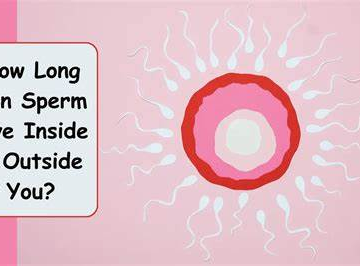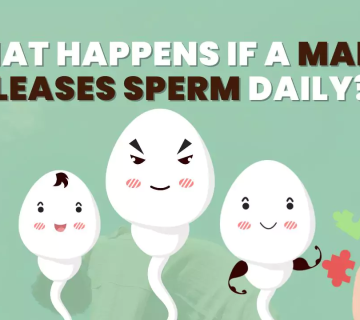
Does Vaping Lower Sperm Count?
Vaping has become incredibly popular over the past decade, especially among individuals looking for an alternative to traditional cigarettes. With sleek devices, a wide range of flavors, and fewer indoor smoking bans to worry about, it’s no surprise that many people have made the switch. Yet as vaping grows more common, so do questions about its impact on health—particularly reproductive health. One of the most frequent concerns is: Does vaping lower sperm count?
In this detailed guide, we’ll take a deep dive into all aspects of vaping and sperm health. We’ll explore what current research says, examine the chemicals involved, discuss potential effects on testosterone and fertility, and offer practical tips for those worried about their reproductive health. The goal is to provide a clear, understandable, and comprehensive resource—one that goes deeper than most articles on the subject, so you can make more informed decisions about your body.
Why Are We Worried About Sperm Count?
Core Point
In recent years, men’s fertility has become a hot topic. Several studies indicate that sperm quality among men worldwide may be declining, and people are searching for reasons why. Vaping, which introduces various chemicals into the body, is among the suspects for potentially contributing to sperm-related issues.
Detailed Explanation
Sperm count (how many sperm cells are present in a given amount of semen) and sperm quality (including shape, motility, and genetic integrity) both matter for male fertility. If either count or quality is compromised, the chances of conception go down. This explains why men trying to start families are curious—rightfully so—about whether lifestyle factors like vaping can hurt their chances.
Scientific Research Support
- A widely cited meta-analysis from 2017 suggested that sperm counts have dropped by over 50% in certain Western countries since the 1970s. While this study didn’t link vaping specifically, it highlighted the general downward trend.
- More recent studies have started looking into e-cigarettes as a possible factor. While some results suggest connections between vaping chemicals and sperm abnormalities, solid, long-term data is still emerging.
Practical Takeaway
Before we dive deeper, it’s clear there’s enough reason to be cautious. If you or someone you know is vaping, especially if family planning is on the horizon, understanding the potential impact on sperm health is crucial.
Understanding Vaping and Its Ingredients
Core Point
Vaping typically involves inhaling vapor produced by an electronic device that heats a liquid (often called “e-liquid” or “vape juice”). This liquid can contain nicotine, flavorings, propylene glycol, vegetable glycerin, and other additives.
What’s in E-Liquid?
| Ingredient | Purpose | Possible Concern |
|---|---|---|
| Nicotine | Highly addictive substance. Gives the “buzz” feeling. | Can affect hormone levels and blood flow, potentially influencing sperm health. |
| Propylene Glycol | Helps produce vapor, used as a carrier for flavors. | Generally recognized as safe in small amounts, but high doses may irritate airways or tissues. |
| Vegetable Glycerin | Also used to create thicker vapor clouds. | Considered low in toxicity, though more research is needed on long-term inhalation effects. |
| Flavorings | Provide taste (fruity, minty, sweet, etc.). | Some flavor chemicals can break down into substances like formaldehyde at high temperatures. |
| Other Additives | Varies widely: sweeteners, colorants, etc. | May contain unknown contaminants or metals (like lead, nickel) that raise health concerns. |
Why These Ingredients Matter
Each ingredient has the potential to interact with your body in different ways. Nicotine is the most famous culprit when it comes to addiction and cardiovascular effects, but other substances—like certain flavor compounds—may also pose a risk to reproductive health.
The Core Question: Does Vaping Lower Sperm Count?
Key Mechanisms to Consider
-
Nicotine and Blood Flow
Nicotine constricts blood vessels, which can affect circulation throughout the body, including the reproductive organs. Proper blood flow is crucial for healthy testicular function and sperm production. -
Oxidative Stress
Chemicals in e-cigarettes may increase oxidative stress inside the body. Oxidative stress can damage cells, including sperm cells, and might lead to decreased sperm count and motility. -
Potential Hormonal Disruption
Nicotine and other chemicals might disrupt hormone production, including testosterone, which is vital for sperm production and overall male reproductive health.
Research Highlights
- Animal Studies: Some rodent studies have found that exposure to e-cigarette vapor led to lower sperm counts and decreased sperm motility. However, animal studies don’t always translate directly to humans.
- Human Observational Studies: A few small-scale human studies suggest a link between heavy e-cigarette use and reduced sperm quality. These studies are preliminary and often rely on self-reported data. Larger, controlled studies are still ongoing.
- Comparisons with Smoking: Traditional cigarette smoking is well-known to harm sperm health. E-cigarettes generally contain fewer toxins than cigarettes, but “fewer toxins” does not necessarily mean “no reproductive harm.” The long-term effects are still under investigation.
Practical Takeaway
While it’s too early to say vaping definitively lowers sperm count in every individual, evidence suggests there may be a real risk—especially for heavy vapers. If you’re concerned about your fertility, it’s wise to err on the side of caution.
The Link Between Vaping and Hormones
Core Point
Hormones like testosterone, follicle-stimulating hormone (FSH), and luteinizing hormone (LH) regulate sperm production. Disruption in these hormones can lead to lower sperm counts, poor sperm quality, or even infertility.
Detailed Explanation
- Testosterone: Produced primarily in the testes, it’s crucial for sperm production and overall male reproductive health.
- FSH and LH: Produced by the pituitary gland, they help regulate how much testosterone your body creates and how sperm develops.
Does Vaping Affect Hormone Levels?
- Nicotine’s Role: Nicotine has been shown to interfere with hormone production by affecting the hypothalamus and pituitary gland. When hormone levels are thrown off balance, sperm production can suffer.
- Indirect Effects: Stress on the body, poor sleep, or vitamin deficiencies linked to vaping could also harm hormone balance.
Scientific Evidence
A 2021 study in a reproductive health journal noted that young males who used e-cigarettes heavily had lower average testosterone levels compared to non-users. This study, however, was relatively small and called for larger-scale research. Still, it does indicate a possible connection worth noting.
Practical Takeaway
If vaping can alter hormones even slightly, it could hinder sperm health. Individuals seeking to optimize fertility might need to reduce or avoid vaping altogether to keep hormone levels stable.
Lesser-Known Chemicals in Vaping Devices
Core Point
Most people focus on nicotine when talking about vaping, but there are other potentially harmful chemicals and metals hidden in e-liquids or released by the device itself. These lesser-known substances can also affect sperm health.
Detailed Explanation
-
Heavy Metals
- Lead: Found in some poorly manufactured devices. Lead exposure is strongly linked to decreased fertility in men.
- Nickel: Can cause allergic reactions and has been noted in the aerosol of certain vape pens.
- Chromium: Another metal that, in large amounts, can harm cells.
-
Ultrafine Particles
Vaping aerosols contain tiny particles that can penetrate deep into the lungs and potentially enter the bloodstream. Chronic exposure may cause inflammation and oxidative stress, both of which can impact reproductive functions. -
Volatile Organic Compounds (VOCs)
Certain flavorings and solvents can break down into VOCs. Prolonged exposure to VOCs may disrupt cell health, including sperm cells.
Why It’s Not Widely Discussed
Vaping is still relatively new, and research on these hidden chemicals is ongoing. Additionally, e-cigarette brands and devices differ widely, making it hard to generalize or pinpoint consistent levels of these toxins in all products.
Practical Takeaway
Even if you choose a “nicotine-free” e-liquid, other chemicals and potential contaminants might still pose a risk. Being aware of these lesser-discussed substances can help you make a more informed decision about using vape devices.
Comparing Vaping to Traditional Smoking
Core Point
Smoking cigarettes is strongly associated with lower sperm counts, reduced sperm motility, and a higher risk of genetic damage in sperm. Does switching to e-cigarettes eliminate or reduce these reproductive risks?
Potential Benefits of Switching to Vaping
- Fewer Known Toxins: Traditional cigarettes contain thousands of chemicals, many known to be carcinogenic. E-cigarettes usually have fewer components, which could lower some health risks.
- Less Combustion: The biggest danger in smoking comes from burning tobacco and inhaling the smoke. Vaping doesn’t involve combustion, so there is less tar and carbon monoxide exposure.
Persistent Risks
- Nicotine Remains: Most vapers still use nicotine, which means issues related to addiction and potential hormonal impact may persist.
- Unknown Long-Term Effects: Vaping is newer, so long-term reproductive studies are limited. It could take years before researchers fully understand the impact on fertility.
Practical Takeaway
Switching from smoking to vaping may reduce certain risks, but that doesn’t mean it’s risk-free—especially for individuals concerned about sperm health or trying to conceive in the near future. If possible, consider gradually reducing nicotine intake and looking for ways to quit altogether.
Does THC or CBD Vaping Affect Fertility?
Core Point
Beyond nicotine, some individuals vape THC (the psychoactive component of marijuana) or CBD (a non-psychoactive component). Their effects on sperm count and fertility might differ.
THC Vaping
- Possible Fertility Impact: Research suggests that high or frequent THC use can lower sperm count, affect sperm motility, and alter sperm morphology.
- Hormonal Changes: THC may impact testosterone production in the short term, though long-term effects vary.
- Risks vs. Smoking Marijuana: Vaping THC might expose you to fewer combustion toxins than smoking it, but the active ingredients can still interfere with reproductive functions.
CBD Vaping
- Less Understood: While CBD is marketed for relaxation and wellness, there is limited data on how it affects sperm count or fertility.
- Potential Oxidative Stress: Some research indicates CBD might help reduce inflammation, but the method of ingestion (like vaping) could introduce other chemicals or irritants.
Practical Takeaway
Anyone concerned about fertility should be cautious with THC, whether smoked or vaped. While CBD appears less risky, the lack of long-term data means we can’t rule out potential consequences, especially if the CBD product has contaminants.
Secondhand Vaping—Should You Be Concerned?
Core Point
Secondhand smoke from regular cigarettes is known to harm health, but what about secondhand vapor?
Detailed Explanation
- Chemical Exposure: While the levels of some chemicals are lower in secondhand vapor compared to traditional smoke, certain substances like nicotine, ultrafine particles, and flavor chemicals can still linger in the air.
- Reproductive Impact: There is limited research on secondhand vapor and sperm health. However, if direct exposure can harm the user, it’s plausible that indirect exposure could have lesser, but still possible, effects over time.
Practical Takeaway
If you live with someone who vapes heavily or spend a lot of time in vape-filled environments, it’s worth ensuring good ventilation. While the risk is likely smaller than direct usage, secondhand exposure is not entirely benign.
Lifestyle Factors That Compound the Risk
Core Point
Vaping doesn’t happen in a vacuum. Other lifestyle factors also play a role in sperm health. Combining multiple risk factors could further compromise fertility.
Common Risk Factors
- Poor Diet: High in processed foods, sugar, and saturated fats can lower sperm quality.
- Lack of Exercise: Staying active helps maintain healthy hormone levels.
- Stress and Sleep: Chronic stress and lack of quality sleep can disrupt hormone production.
- Alcohol and Other Substances: Excessive alcohol intake or recreational drug use can compound the negative effects on sperm.
Why This Matters
When you combine poor lifestyle habits with potential reproductive damage from vaping, you might create a “perfect storm” for fertility problems. Even if vaping alone has a moderate effect, stacking it with other negative factors can significantly lower your chances of healthy sperm production.
Practical Takeaway
Addressing overall lifestyle choices might offer a dual benefit: improving general well-being and mitigating potential fertility risks from vaping or other habits.
Enhancing Fertility: Practical Steps for Vapers
Below are some targeted suggestions for those concerned about vaping’s effect on sperm health. While everyone’s situation is unique, taking these actions can potentially bolster overall fertility and minimize any risk related to e-cigarette use.
Step 1—Reduce Nicotine Levels
- Gradual Tapering: If you’re using a high nicotine concentration, try lowering it slowly over time.
- Why It Helps: Less nicotine could mean less hormonal disruption and better circulation.
Step 2—Consider Nicotine-Free Alternatives
- Nicotine-Free E-Liquids: If flavor is your main draw, switching to zero-nicotine options may reduce some reproductive risks.
- Caution: Still watch out for harmful flavor chemicals, metals, and other additives.
Step 3—Limit Frequency
- Scheduled “Vape Breaks”: Instead of vaping continuously, set specific times to vape.
- Benefits: Reducing total exposure might lessen any negative impact on sperm.
Step 4—Optimize Your Lifestyle
- Nutrition: Focus on fruits, vegetables, lean proteins, and whole grains.
- Exercise: Regular physical activity supports healthy testosterone levels and overall reproductive function.
- Sleep: Aim for 7-9 hours of quality sleep to maintain hormone balance.
Step 5—Consider Professional Help
- Talk to a Doctor: A fertility specialist or urologist can provide personalized advice.
- Seek Smoking Cessation Programs: If quitting nicotine is challenging, professional support or medication might help.
The Latest Studies and Emerging Data
Core Point
Research is ongoing, and new findings about vaping and sperm health appear each year. Let’s look at some of the latest developments that haven’t been widely discussed.
Recent Highlights
-
2023 Pilot Study on Flavored E-Liquids
- What They Found: Researchers noticed that men who vaped sweet or dessert-flavored e-liquids had slightly higher markers of oxidative stress in their semen compared to those who used unflavored or tobacco-flavored e-liquids.
- Implication: Certain flavor compounds might have a more pronounced negative effect.
-
E-Cigarette Device Temperatures
- Study Result: Higher-wattage devices that burn hotter can break down e-liquid components more quickly, creating more toxic byproducts.
- Why It Matters: The risk of sperm damage may increase if you frequently use high-wattage or high-temperature vape devices.
-
Potential Protective Nutrients
- Early Findings: Some research suggests a diet high in antioxidants (vitamins C, E, zinc, and selenium) could offer partial protection against chemical-induced oxidative stress.
- Practical Tip: Eating antioxidant-rich foods or taking supplements might help reduce some of the reproductive risks tied to vaping.
Practical Takeaway
Staying updated on emerging research can guide more informed decisions. As new data appears, you might adjust vaping habits or diet based on the latest information.
Common Myths About Vaping and Male Fertility
Core Point
Misinformation can lead to confusion and complacency. Let’s clear up a few popular myths.
-
Myth: “Nicotine is the only concern.”
- Reality: While nicotine is significant, other chemicals—flavorings, metals, and solvents—also pose risks to sperm health.
-
Myth: “Zero-nicotine e-liquids are totally safe.”
- Reality: Nicotine-free doesn’t mean chemical-free. You can still inhale harmful byproducts or contaminants.
-
Myth: “If I vape, I’ll definitely become infertile.”
- Reality: Vaping doesn’t guarantee infertility, but it may increase the risk. Factors like genetics and overall health also play a big role.
-
Myth: “Vaping is harmless compared to smoking.”
- Reality: While it might be less harmful than smoking tobacco, ‘less harmful’ does not mean harmless—especially concerning sperm health, where even small changes can matter.
Signs That Vaping May Be Affecting Your Reproductive Health
Core Point
It’s not always obvious that vaping is impacting your fertility. However, there are certain signs and symptoms to watch for.
Possible Indicators
- Changes in Libido: A significant drop in sex drive could hint at hormonal imbalances.
- Erectile Difficulties: Nicotine’s effect on blood vessels can sometimes contribute to erection challenges.
- Difficulty Conceiving: If you and your partner have tried for over a year without success, and you vape heavily, it might be a factor.
- General Health Declines: Frequent respiratory issues, fatigue, or other health complaints can also signal underlying stress on the body that might affect sperm.
What to Do If You Notice These Signs
- Get a Semen Analysis: This test measures sperm count, motility, and morphology.
- Consult a Specialist: A fertility doctor or urologist can provide testing, lifestyle recommendations, and potential treatments.
A Quick Checklist (✔️ and ❌) for Men Who Vape
✔️ Do This:
- Reduce Nicotine Levels
- Stay Hydrated
- Exercise Regularly
- Eat Antioxidant-Rich Foods
- Get Regular Check-Ups
❌ Avoid This:
- Using High-Wattage Devices Continuously
- Overusing Sweet or Dessert-Flavored E-Liquids
- Ignoring Symptoms Like Low Libido
- Mixing Vaping with Excessive Alcohol or Drug Use
- Believing There’s No Risk at All
Keeping this checklist in mind can help you navigate the complexities of vaping and sperm health.
Additional Tips for Boosting Sperm Health
Even if you continue vaping, these steps can enhance your fertility and overall well-being:
Maintain a Healthy Weight
Obesity is connected to lower sperm count and poorer sperm quality. Combining a balanced diet and regular exercise can have a positive impact on both fertility and general health.
Avoid High Heat on the Testicles
Excessive heat can temporarily lower sperm production. Steer clear of hot tubs and tight-fitting underwear. If you vape in a car, make sure the temperature isn’t too high for extended periods.
Limit Exposure to Toxins
Reducing contact with pesticides, industrial chemicals, and other pollutants can also contribute to better reproductive health.
Manage Stress
Stress elevates cortisol, which can undermine testosterone production and sperm health. Practices like meditation, yoga, or even simple deep-breathing exercises can help keep stress in check.
Real-Life Stories and Practical Examples
Sometimes, personal anecdotes can help illustrate how vaping might play a role in fertility.
-
Jack’s Journey to Fatherhood
- Scenario: Jack was a heavy vaper who struggled with low sperm motility. After cutting down on vaping and improving his diet, his sperm test results showed significant improvement.
- Lesson: Lifestyle changes, combined with reduced vaping, can make a difference.
-
Mike’s Misconception
- Scenario: Mike believed zero-nicotine vaping was harmless. He later discovered other chemicals might be affecting his sperm health, especially from certain flavorings.
- Lesson: Even nicotine-free options can pose risks; it’s important to do thorough research or consult a professional.
While these examples are not one-size-fits-all, they reflect the reality that adjusting vaping habits and daily routines can positively influence fertility outcomes.
Frequently Asked Questions (FAQs)
Q1: Can vaping affect fertility if I’ve only been doing it for a short time?
It’s less likely to cause long-term damage if you’ve only vaped occasionally or for a brief period. However, any exposure to harmful chemicals can impact your body. If you’re trying to conceive, reducing or quitting sooner is always beneficial.
Q2: How long does it take for sperm to recover after quitting vaping?
Sperm cells take about 72-90 days to develop and mature. If you stop exposing your body to vape chemicals, you could see improvements in sperm parameters in roughly 3 months, although this varies among individuals.
Q3: Are there safer forms of nicotine if I still want that fix?
Nicotine replacement therapies (like patches or gum) generally have fewer chemicals than e-cigarettes or regular cigarettes. They might be a better choice if you’re focusing specifically on reducing reproductive risks. Always consult a healthcare provider first.
Q4: Does vaping cause erectile dysfunction (ED)?
While not as well-studied as cigarette smoking, early data suggest vaping may contribute to ED by affecting blood flow and hormone levels. It’s an area that needs more research.
Q5: Could vaping help me avoid the fertility risks of smoking tobacco?
Switching from heavy smoking to vaping might reduce some fertility risks, but it doesn’t eliminate them completely. If fertility is your main concern, total nicotine cessation is ideal.
Expert Opinions and Guidance
Medical Perspective
Many medical professionals take a cautious stance on vaping’s long-term health effects, including fertility. Organizations like the American Urological Association (AUA) recommend avoiding any tobacco or nicotine products when trying to conceive. Healthcare providers also stress that continuous research is needed, given the evolving nature of vaping products and usage patterns.
Fertility Specialist’s Approach
Reproductive endocrinologists or fertility doctors often ask patients about their smoking or vaping habits. Depending on your test results (like a semen analysis), they might advise:
- Complete cessation of nicotine
- Additional diagnostic tests (hormone panels, scrotal ultrasound, etc.)
- Lifestyle interventions (diet, exercise, supplements)
A Deeper Dive into Antioxidants and Supplements
Core Point
One under-discussed avenue is how certain vitamins and minerals may protect against some vaping-related oxidative stress.
Examples of Helpful Nutrients
-
Vitamin C
- Function: Acts as a powerful antioxidant, helps protect sperm cells from oxidative damage.
- Sources: Citrus fruits, strawberries, bell peppers.
-
Vitamin E
- Function: Works alongside Vitamin C to bolster antioxidant defenses.
- Sources: Nuts, seeds, spinach.
-
Zinc
- Function: Crucial for testosterone production and sperm development.
- Sources: Oysters, beef, pumpkin seeds.
-
Selenium
- Function: Supports healthy sperm morphology.
- Sources: Brazil nuts, tuna, chicken.
Practical Advice
If you’re vaping, adding these nutrients to your diet or taking a multivitamin could provide some protection against the potential oxidative stress caused by e-cigarette chemicals. However, supplements are not a magic bullet. Lifestyle changes (including addressing vaping) are still key.
What If You Want to Quit Vaping?
Quitting vaping—or at least reducing your intake—can be challenging. Here are some strategies if you’re aiming to reduce the potential negative impact on sperm count:
1. Gradual Reduction
- Set Clear Goals: For instance, reduce your nicotine level every month.
- Track Progress: Keep a daily log of how many vape sessions you have.
2. Nicotine Replacement Therapy (NRT)
- Why It Helps: It provides nicotine without many of the added chemicals found in e-liquids.
- Types: Patches, gum, lozenges, inhalers.
3. Behavioral Support
- Counseling or Support Groups: Sharing struggles and victories with others can help keep you on track.
- Stress Management: Techniques like meditation can reduce the psychological triggers to vape.
4. Keep Busy
- Find New Hobbies: Sometimes, boredom or habit is a big part of the urge to vape.
- Exercise More: Physical activity can help you cope with withdrawal symptoms and boost overall health.
Bringing It All Together
Vaping might not be as overtly harmful as traditional smoking in some respects, but growing evidence points to a potential risk for male fertility. Whether it’s nicotine, heavy metals, flavor chemicals, or oxidative stress, multiple factors suggest a possible negative impact on sperm count and quality. But remember, many things can affect fertility—diet, stress, sleep, and genetics all play roles too.
Key Takeaways
- Vaping Is Not Risk-Free
Even zero-nicotine e-liquids may contain harmful substances. - Nicotine Can Affect Hormones
Lower testosterone and disrupted hormone balance can reduce sperm production. - Other Chemicals Matter
Heavy metals and flavor compounds may contribute to oxidative stress. - Lifestyle Still Counts
Improving diet, exercise, and overall health can offset some risks. - More Research Is Coming
Stay updated with the latest findings to make informed decisions.
Let’s Engage! Your Input Matters
Thank you for making it to the end of this long, in-depth discussion on vaping and sperm health. We covered a lot of ground—from hormones and heavy metals to quitting strategies and nutrient support.
Now we’d love to hear from you:
- Have you noticed any changes in your health or fertility that you suspect might be related to vaping?
- What strategies have you tried to reduce or quit vaping, and how did they work for you?
- Do you have additional questions or concerns about vaping and sperm health that weren’t covered here?
Feel free to share your thoughts or experiences in the comments below. Your story could help someone else make more informed decisions. If you found this article helpful, consider forwarding it to a friend or loved one who might also benefit. Together, we can spread awareness and help more people take control of their reproductive health.




No comment